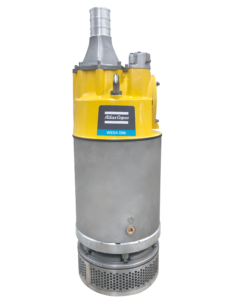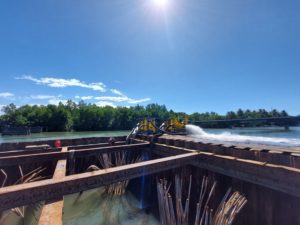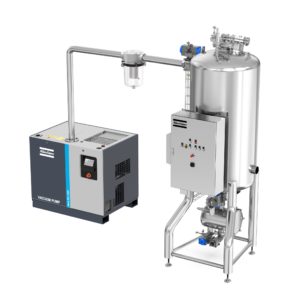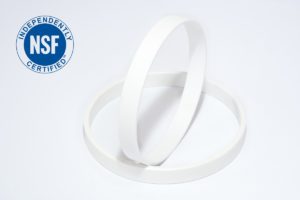Next Generation WEDA D95 Dewatering Pump
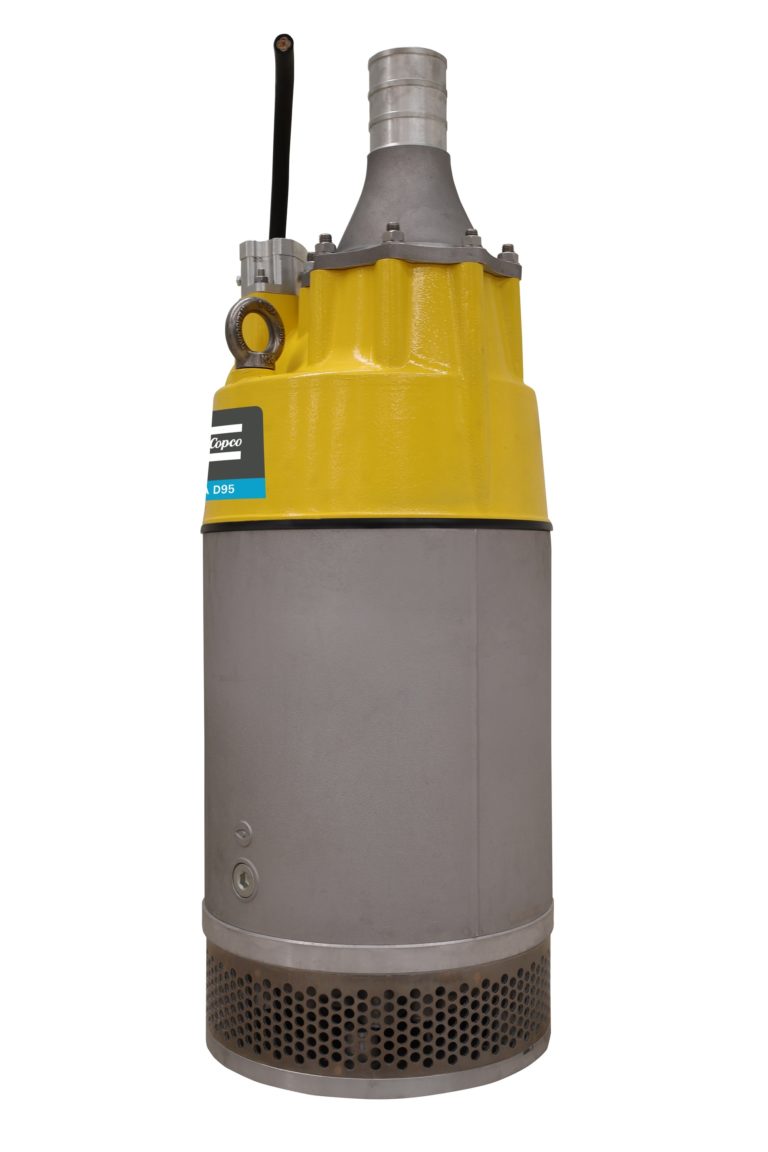
Next-generation WEDA D95 dewatering pump delivers exceptional performance over a long service life. (Image source: Atlas Copco Power and Flow)
WEDA D95 has a power rating of 37 – 43kW and is the latest pump in the WEDA D drainage range to feature the innovative Wear Deflector Technology designed to minimise wear and provide consistent performance over a longer operating life. Features such as a high chrome wear resistant impeller combined with solid-redirecting auxiliary vanes contribute towards its exceptional performance. The pump also features re-adjustable hydraulics which allow the pump to be simply realigned to compensate for any wear, thus prolonging its life. All these elements have a significant positive impact on the overall operational productivity, meaning users can achieve a lower total cost of ownership.
“There are often many suspended solids in harsh applications which can cause excessive abrasion and wear to the internal workings of the pump,” says Bart Duijvelaar, Product Marketing Manager – Submersible pumps at Atlas Copco Power and Flow. “At Atlas Copco, we are driven by innovation, and so we have taken the fundamental design of the drainage pump back to the drawing board. We have optimized the hydraulic design using Computational Fluid Dynamics (CFD) and applied 21st century manufacturing techniques combined with decades of experience to produce this new long-lasting and reliable pump.”
The pump has also been built with maintenance and serviceability front of mind. Thanks to the clever design, users can also carry out inspection and maintenance on site themselves and reduce downtime and associated costs. For example, the mechanical seal is a unique stainless-steel single cartridge, rather than many separate components, and so it is easy to replace in one piece. For Atlas Copco Power and Flow achieving a more sustainable future is crucial. Therefore, facilitating the repairability of its pumps has been at the forefront of the design to ensure less time-consuming maintenance and best-in-class service support. So, it gives a second life to these pumps with increased uptime.
WEDA D95 also features external oil inspection screws. Operators can easily access the screws to check the quality of the oil and the health status of the seal without having to dismantle the whole pump. This makes preventive maintenance easy so users can detect problems before they lead to failure. Overall, with the ease of service, it is possible to readjust the pump to the original performance without changing many parts. The pump’s repairability prolongs the life of the pump, giving it a second life and contributing towards a more sustainable future.
Additionally, the pumps in the D range are available with various accessories including different types of discharge connections, pump rafts and zinc anodes to provide extra corrosion resistance.
The new WEDA D95 pumps are backed by Atlas Copco’s service team and supported by a wide network of local dealers and technicians worldwide with readily available parts to help users keep their operations up and running to improve productivity.
With state-of-the-art manufacturing and 3D modelling tools, Atlas Copco is addressing product performance and technical challenges at the design stage. The WEDA D95 submersible pump is the latest example of a well-crafted and thoughtfully designed pump range, with more models expected in the company’s portfolio in the coming years.
Source: Atlas Copco AB

